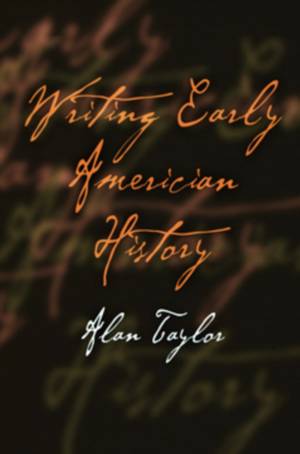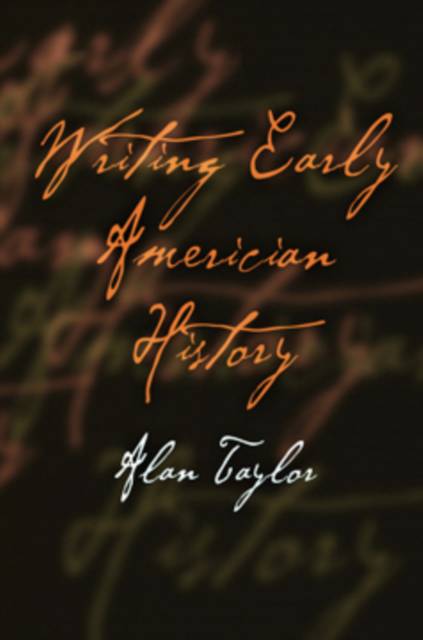
- Afhalen na 1 uur in een winkel met voorraad
- Gratis thuislevering in België vanaf € 30
- Ruim aanbod met 7 miljoen producten
- Afhalen na 1 uur in een winkel met voorraad
- Gratis thuislevering in België vanaf € 30
- Ruim aanbod met 7 miljoen producten
Zoeken
Omschrijving
"Whoever reads these essays--and whether they follow the book from cover to cover, or dip into chapters at random--will find the rich abundance and variety of early American scholarship set out before them. Readers new to the field will grasp a sense of its expansiveness and possibilities, but seasoned scholars, too, will find here a feast of insights and possibilities that will engage, provoke, and inspire them."--from the Foreword, by Christopher Clark
How is American history written? In a penetrating series of review essays, prize-winning author Alan Taylor provides his own answer to this question. In the pages of The New Republic, he has regularly scrutinized the writing of the most interesting historians of early American history. Together these reviews provide the general reader a rich and rewarding introduction to their subjects. The books reviewed span an enormous range of scholarship, from popular biographies of Founding Fathers, to investigations of murders of prostitutes to discussions of frontier technology. Grouped thematically, the essays reveal a historian with an unrivaled breadth of knowledge and an admirable passion for his subject, and one who has contributed a continent-wide perspective to colonial history. As readers steep themselves in world-class scholarship, they also discover a writer who takes very seriously his role as reader.Specificaties
Betrokkenen
- Auteur(s):
- Uitgeverij:
Inhoud
- Aantal bladzijden:
- 280
- Taal:
- Engels
Eigenschappen
- Productcode (EAN):
- 9780812219104
- Verschijningsdatum:
- 5/07/2006
- Uitvoering:
- Paperback
- Formaat:
- Trade paperback (VS)
- Afmetingen:
- 153 mm x 229 mm
- Gewicht:
- 426 g

Alleen bij Standaard Boekhandel
+ 103 punten op je klantenkaart van Standaard Boekhandel
Beoordelingen
We publiceren alleen reviews die voldoen aan de voorwaarden voor reviews. Bekijk onze voorwaarden voor reviews.







